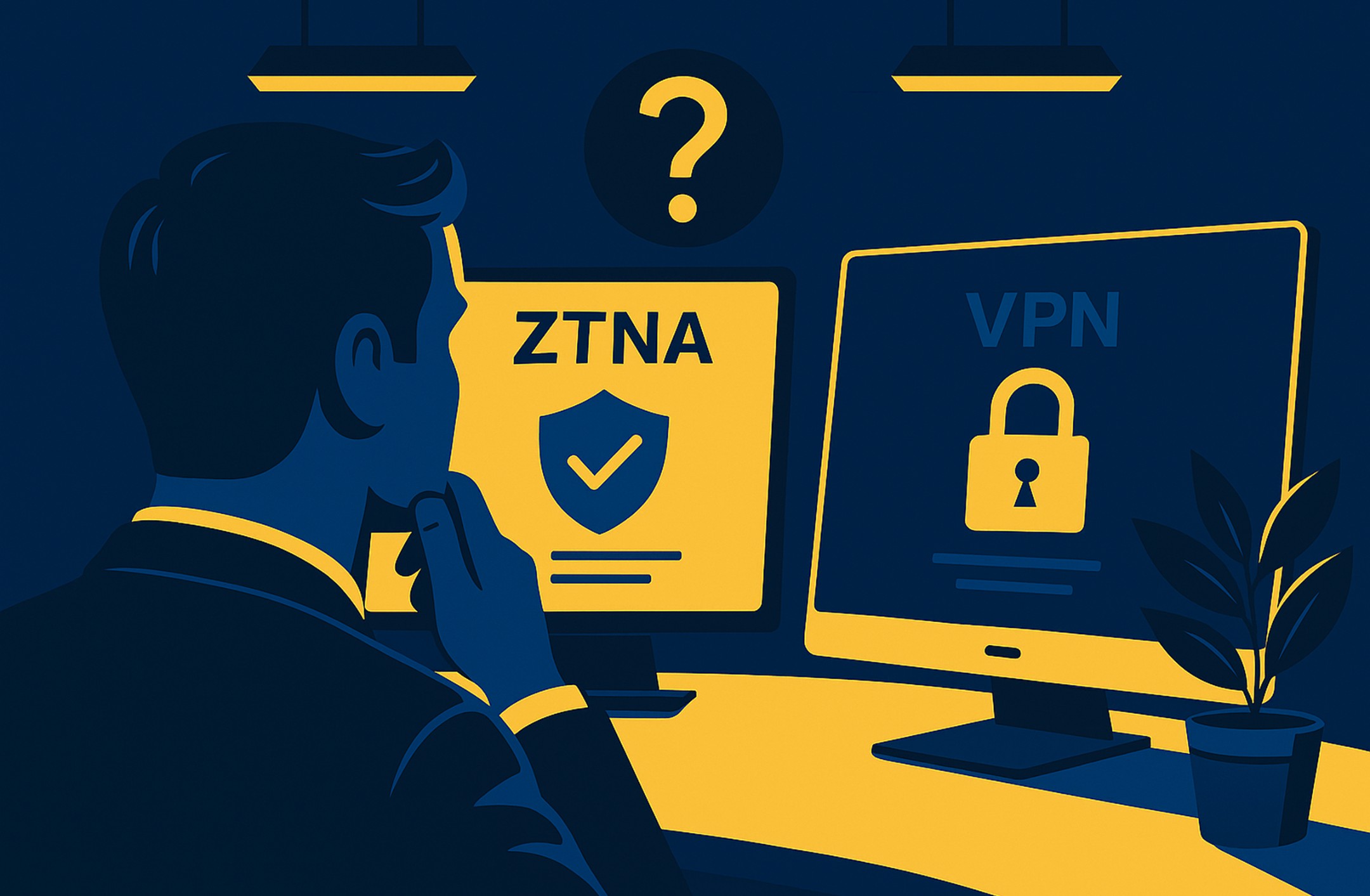Shawn Freeman
CEO

In today’s remote and hybrid work landscape, providing secure access to business systems is essential. But the tools we use to do that are rapidly evolving.
If your organization still relies on traditional Virtual Private Networks (VPNs), you may be exposing your network to unnecessary risk. Enter Zero Trust Network Access (ZTNA) — a modern, scalable, and secure alternative that many businesses are adopting in 2025.
In this guide, we’ll compare ZTNA and VPNs, break down the key differences, and help you determine which is the right fit for your business this year and beyond.
A VPN creates an encrypted tunnel between a user’s device and your internal network. It masks IP addresses and allows users to appear as though they’re working from the office.
While VPNs have been the default for remote access for decades, they were designed for a very different IT landscape — one that didn’t include widespread cloud adoption or remote work at scale.
ZTNA flips the script on traditional network access by following the “never trust, always verify” model. Instead of granting access to the entire network, ZTNA only allows users to connect to specific applications and services they’re authorized to use.
ZTNA also verifies user identity, device health, and behavior continuously — not just at login. This provides better control, more visibility, and stronger protection against lateral attacks.
Cybersecurity threats are more sophisticated than ever. VPNs often serve as a single point of failure — if an attacker gains access to VPN credentials, they can freely explore the network.
In fact, stolen VPN credentials have been a key attack vector in several high-profile data breaches. The U.S. Cybersecurity & Infrastructure Security Agency (CISA) has even issued ongoing alerts about VPN vulnerabilities.
With more organizations moving to the cloud, the limitations of VPNs become even more apparent. They’re not built for cloud-first or hybrid environments — ZTNA is.
ZTNA is gaining traction with small and mid-sized businesses that want:
ZTNA offers a more secure, scalable, and modern way to support remote and hybrid workforces. While VPNs may still play a role in specific scenarios, relying on them alone leaves your business exposed.
As more SMBs adopt cloud services and face increasing regulatory pressure, ZTNA is quickly becoming the gold standard in secure remote access.
Ready to upgrade your security approach? Our team can help you assess your current environment and develop a customized ZTNA roadmap that fits your business needs.
Contact us to schedule a no-pressure consultation.
See exactly how your current IT setup measures up to our Hack Free standards. Enter your business email to receive: